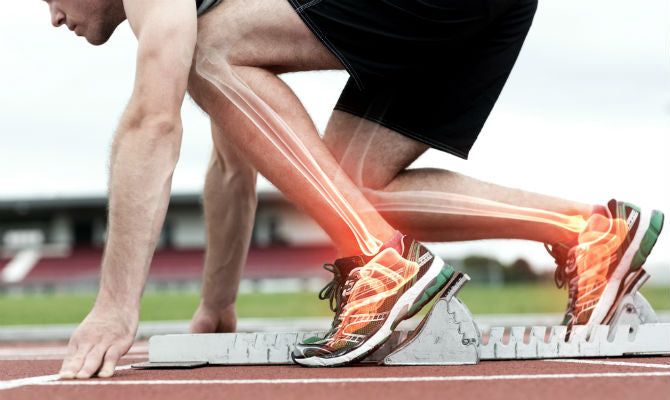
Strong bones support better posture, reduce chronic pain, improve athletic performance, and even boost confidence. The habits that build bone strength also happen to be the same ones that support overall vitality, energy, and longevity.
The Morning Ritual:
Forget expensive supplements for a moment and step outside. Just 10-15 minutes of morning sunlight exposure is one of the most powerful bone-building habits you can develop, and it costs absolutely nothing. When UV-B rays hit your skin, they trigger vitamin D synthesis—and vitamin D is what allows your body to actually absorb and use the calcium you consume.
The timing matters too. Morning sunlight is gentler and safer than midday sun, reducing the risk of skin damage while still providing vitamin D benefits. Plus, morning light exposure helps improve sleep quality, which creates a positive cycle for bone health.
Weight-Bearing Movement:
Your bones respond to stress—but the good kind. Every time you put weight-bearing stress on your skeletal system, you’re sending a signal that says “build stronger bones to handle this load.” This is why astronauts lose bone density in space and why people who are bedridden experience rapid bone loss.
Simple weight-bearing activities like walking, climbing stairs, dancing, or even vigorous housework all count. The key is impact and resistance activities that work against gravity and create mild stress on your bones.
What many people don’t realize is that different activities stress different bones. Walking is excellent for your hips and spine but doesn’t do much for your upper body. Carrying groceries, doing push-ups against a wall, or lifting light weights addresses your arms and upper spine. The most comprehensive bone health programs include variety.
The Protein Priority:
Think bones are just about calcium? Think again. Your bones are about 50 percent protein, and inadequate protein intake can actually increase fracture risk even when calcium intake is adequate. Protein provides the structural framework that calcium mineralizes—like the rebar in concrete.
But it’s not just about quantity; it’s about timing and quality. Your body can only process about 20-30 grams of protein at once for muscle synthesis, and similar principles apply to bone health. Spreading protein throughout the day is more effective than having one large portion.
Plant-based proteins deserve special mention here. While animal proteins are excellent for bone health, plant proteins come with additional bone-supporting nutrients like magnesium, potassium, and vitamin K. The ideal approach combines both: Example: Greek yogurt with nuts, eggs with vegetables, or fish with quinoa.
Water for Strong Bones
Water might seem unrelated to bone health, but adequate hydration is crucial for nutrient transport, waste removal, and the cellular processes involved in bone remodeling. Dehydration can impair the delivery of bone-building nutrients and the removal of metabolic waste from bone cells.
But here’s an interesting twist: the type of water you drink might matter too. Some mineral waters are rich in calcium and magnesium, essentially providing bone-building nutrients with every sip. Studies have shown that people who drink mineral-rich water have higher bone density than those who drink soft or distilled water.
The timing of hydration also influences nutrient absorption. Drinking water with meals can help with the absorption of fat-soluble vitamins like vitamin D, while staying hydrated throughout the day ensures optimal nutrient transport to bone cells.

